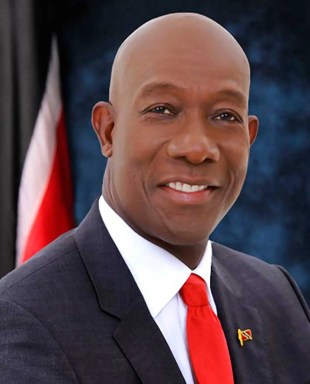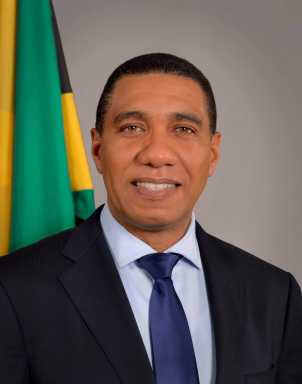Listeners:
Top listeners:
-
play_arrow
RadioJLR Just Press Play
By the end of this year, the Trinidad government would ensure that the national coat of arms no longer bears the images of the three ships that Christopher Columbus and his sailors used on their maiden voyage to “rediscover” the West Indies more than 800 years ago, saying it will be removed as part of the process of sanitizing the country from its colonial past.
Prime Minister Keith Rowley told a key meeting of his governing People’s National Movement (PNM) at the weekend that cabinet has every intention of replacing the Pinta, The Nina and The Santa Maria with the steelpan which recently officially became the national instrument of the Trinidad federation with Tobago. The entire exercise should be completed by around October and is part of a review of colonial symbols, monuments and other images which are still in place, 62 years after independence from Britain.
Street names, the titles of national buildings and other facilities will also be reviewed by a special committee as part of the plan to rid the resource-rich country of the vestiges of some colonial relics.
“You see them three Columbus boats in the emblem, they will go. And since we have enough votes in the Parliament to do it. I can announce now that as soon as the legislative adjustment is made, that amendment should be made before the 24th of September. We are going to replace Columbus’s three ships: the Nina, the Pinta and the Santa Maria with the steelpan. And for logistical purposes, that will take place over a six-month period, allowing us to consume the stationary and other things we have in place and be replaced by our new intention,” Rowley said.
Back in 2020 there was also a colossal debate in Trinidad about whether a huge bronze statue of Columbus should have been removed from its prominent position in downtown Port of Spain, Trinidad’s capital, but to this day it remains in place, though covered up and not as jarring to the eye as it had been for decades. Whether it will survive the new push by the administration to remove symbols of European colonialism in the coming months remains unclear. Rowley also batted for the replacement of the British privy Council as the federation’s apex court saying time is running out and one day cases will no longer make it to the courtrooms of the British law lords.
“That should signal that we are on our way to removing the colonial vestiges that we have in our constitution. And I hope that we start with that and no longer end up being squatters on the steps of the Privy Council (in London) because all those who believe that the Privy Council must always be our supreme court one of these days in England will take the decision to expel us.”
Reaction to the move came swift and fast from political analysts and the main opposition United National Congress (UNC) which, like the PNM, is in the early stages of preparation for general elections late next year.
Opposition Leader and former Prime Minister Kamla Persad-Bissessar said in a statement late Monday that greater thought should be put into the move by cabinet as she fears such actions to ignite racial tensions.
“Sanitizing history, truth, and free speech in the modern era of wokeness, virtue signaling, and cancel culture will only promote ignorance and foster the repetition of evil acts in the future that can be preventable. The truth of our past and present is bitter and harsh and should not be manipulated to serve any singular agenda. Instead, it should be used to enlighten successive generations so they will not repeat the mistakes and misdeeds of the past. The nation’s true history should be taught in our schools, one that provides the good and bad of all our historical figures,” she said.
“Many people are engrossed in debating the changes to the Coat of Arms and the many possible practical effects of such change. This entire political conversation, starting with the proposed changes to the Coat of Arms, is a tinderbox that can be ignited when emotions run high and ignorant, unscrupulous persons begin gaslighting the population. This is how ethnic rivalries, societal strife, and hate are stirred up in a primarily peaceful multicultural society like ours, which can then devolve into violence and destroy our societal peace. We have seen this all over the world before.”
Trinidad’s push to rid one of its main national symbols of Christopher Columbus and his invading ships appears to be part of a move by several Caribbean countries to replace colonial relics with local symbols and images. Barbados had removed British colonial era warrior Lord Nelson from heroes square before independence in late 2021 and Guyana had dumped Queen Victoria in a forested area in the east of the city before it was retrieved and placed in the compound of the supreme court decades ago.
Similar posts
© 2025. All Rights Reserved by Radio-JLR




Post comments (0)